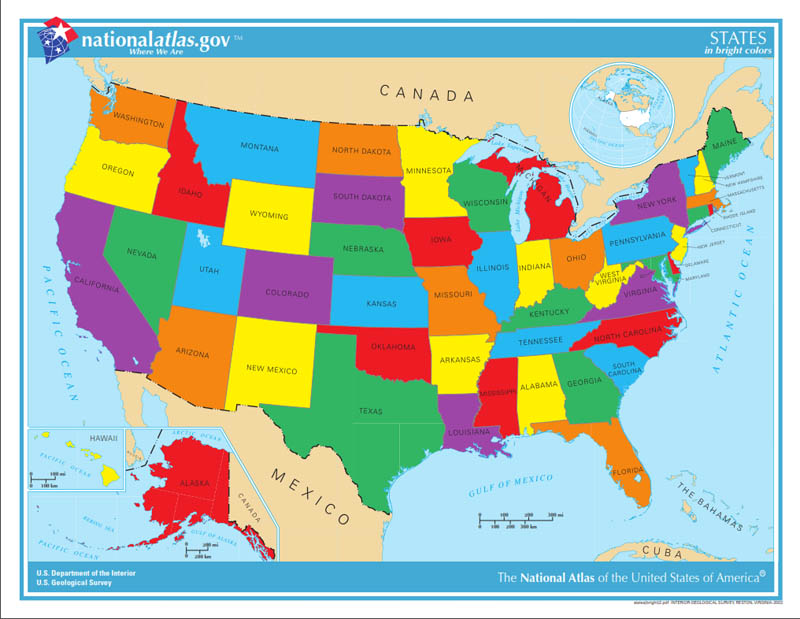Trump Administration
Roadless Rule Revisited
Rationale for revocation of the roadless rule does not add up
The roadless rule, promulgated in the Clinton Administration, but not free from litigation until the first term of the Obama Administration, set aside about 2% of the land area of the lower 48 United States from commercial development. It applies to roadless areas of National Forests, and prohibits commercial logging and road construction in those …
Continue reading “Roadless Rule Revisited”
CONTINUE READINGEnvironmental Groups and the New McCarthyism
The Administration’s search for a vast leftwing conspiracy could ensnare some environmental groups.
The White House’s reference to a “vast network” rings a historical bell. A speaker seventy years ago decried “a conspiracy on a scale so immense as to dwarf any previous such venture in the history of man.” That speaker was Joe McCarthy. Environmental groups weren’t active during his time, but does anyone doubt that they would have been on his hit list?
CONTINUE READINGThe Legal Barricades Protecting State Climate Policy
The general legal landscape favors state regulatory efforts.
The upshot is that it will be very challenging for the Feds to overturn state emissions regulations of power plants and other facilities. The statutory and doctrinal landscape are favorable for states playing defense, and the Supreme Court seems if anything more favorable to the states than the national government. Of course, these general observations leave plenty of room for litigation over the fine points, and the Feds could win some cases. But the states start the contest with an advantage.
CONTINUE READINGGuess What? The Next 2 Weeks Are “National Energy Dominance Month”
October 17-31 has now been proclaimed to be an entire month, courtesy of Trump.
“National Energy Dominance Month.” So typical of Trump: a bungled exercise in foolish bravado. The “bungled” part is that they forgot to designate October as a special month until it was halfway over. The “bravado” saturates almost every sentence, combined with the fact that the blustering has no practical effect. And the “foolish” part is about bad energy policy and bad economics. To expand supply, he needs higher prices, but that would hurt him politically. And there’s no reason to think foreigners would pay them.
CONTINUE READINGBackfilling the federal ESA
AB 1319 is a good first step to responding to efforts to weaken the federal ESA
I wrote this past spring about a proposal by the Trump Administration to eliminate the definition of harm in the regulations implementing the federal Endangered Species Act (ESA), which might eliminate protections from habitat modification for federally listed species. I also noted three different steps California could do to backfill the federal ESA if such …
Continue reading “Backfilling the federal ESA”
CONTINUE READINGRevoking Monuments?
Recent Justice Department memo on National Monuments argues for Presidential power to eliminate them entirely
National monuments were a major flashpoint for public lands management under the first Trump Administration, which dramatically shrank two national monuments in Utah. I think there was a broad expectation that the second Trump Administration would do the same, but for more monuments (including those designated under the Biden Administration), but so far not much …
Continue reading “Revoking Monuments?”
CONTINUE READINGLearning from the Laureates
The 2025 Economics Prize, Technological Innovation, and the Energy Transition
In energy technology as elsewhere, Trump is hobbling American science with budget cuts and demands for political submission. The epitome of his approach is the decision to give political appointees rather than experts the ultimate decision on each project, replacing scientific merit with politics as the deciding factor. His war on science is also a war on future economic growth. And his effort to halt creative destruction is the pathway to a stagnant economy. By trying to prop up an incumbent industry threatened by new technologies, he’s undercutting a central driver of economic growth.
CONTINUE READINGHow broad does Clean Water Act 401 certification sweep?
Recent disputes over infrastructure projects highlights the importance of the question
Another issue for ping-pong governance over the past few years has been certification under Section 401 of the Clean Water Act. For those of you who are not deep into the weeds of the Clean Water Act, Section 401 requires (a) federal agencies that are issuing licenses or permits that (b) result in discharges to …
Continue reading “How broad does Clean Water Act 401 certification sweep?”
CONTINUE READINGThe War on Public Health Continues
Friday’s layoffs announcements at CDC targeted infectious disease control
During the COVID outbreak, President Trump said, “If we stopped testing right now, we’d have very few cases, if any.” That philosophy seems to have taken hold during his second term in office. On Friday, the Administration fired more than a thousand CDC workers, incljding the scientists and doctors who provide key information and expertise about infectious disease outbreaks. The effect is to kneecap the government’s capacity to detect and track outbreaks.
CONTINUE READINGTake Two
Trump Administration reasoning around the definition of take appears contradictory
I’ve written before about how the Trump Administration is proposing to eliminate the definition of “harm” in the Endangered Species Act (ESA) regulations – an action that could remove protections for endangered species from habitat modification. The main justification that the Administration is relying upon in the proposal is a claim that the best interpretation …
CONTINUE READING








